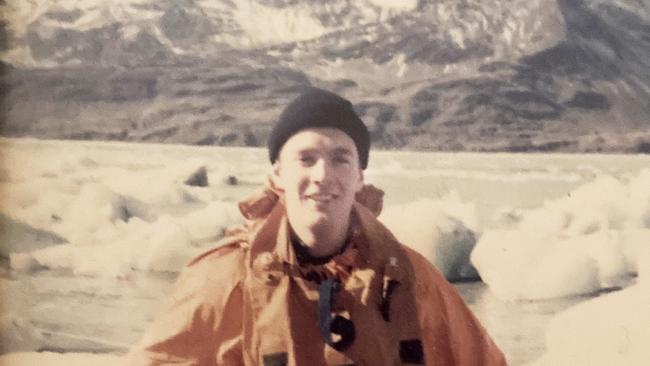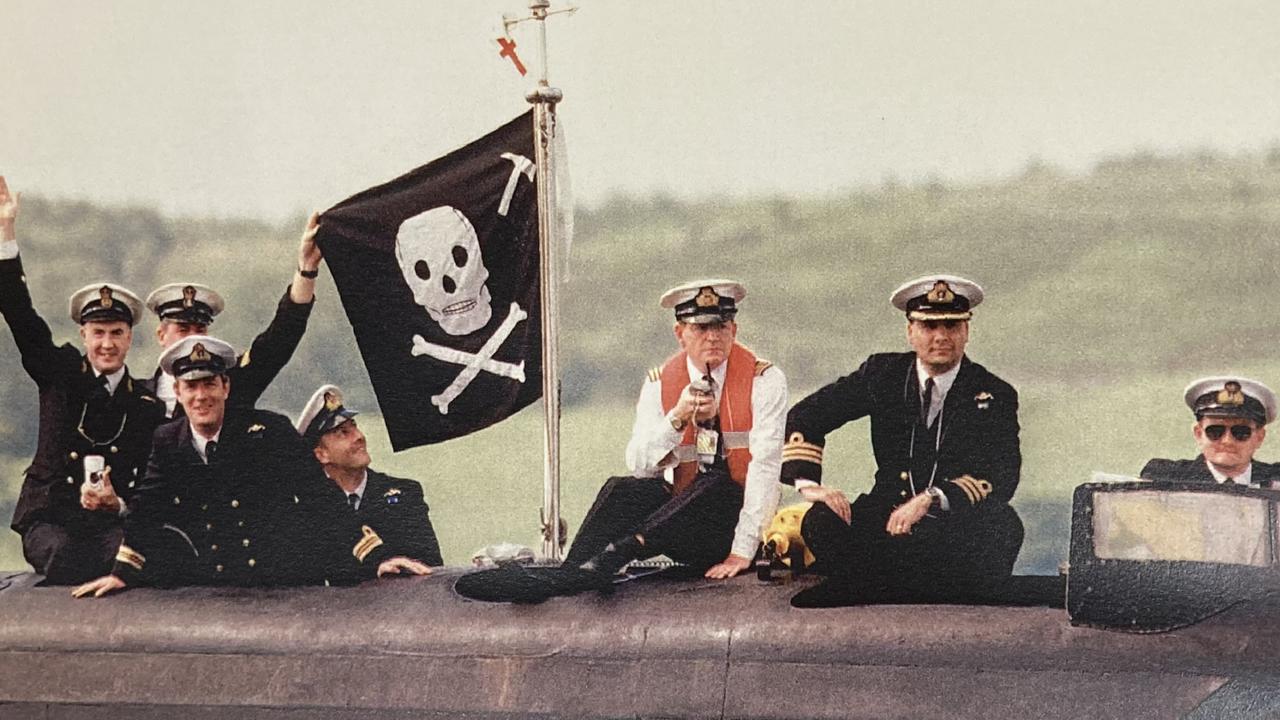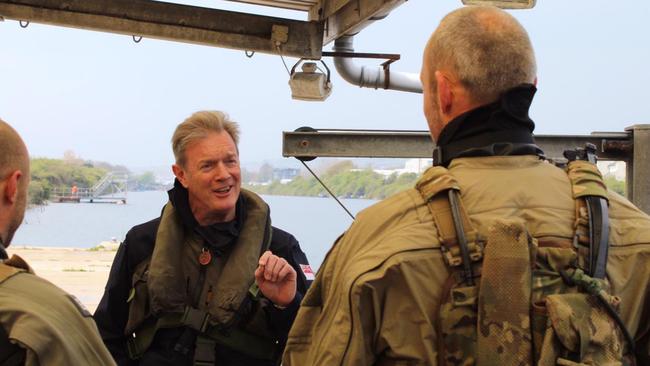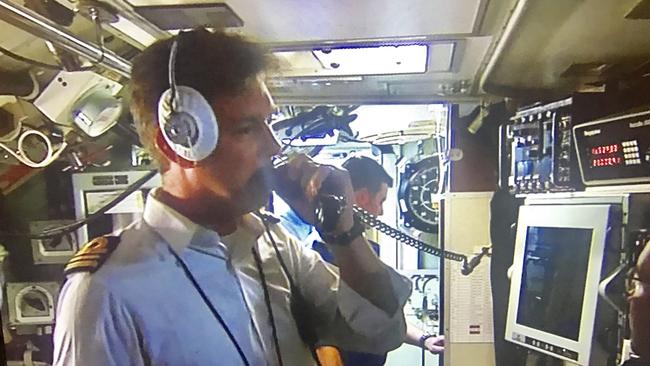‘Had I been diagnosed when I joined I wouldn’t have been able’: The diagnosis that could have scuttled AUKUS boss’s career
From commanding a nuclear attack submarine, to spearheading the reconstruction of Iraq’s navy, Sir Nick Hine is a decorated veteran – and lives with autism.
SA News
Don't miss out on the headlines from SA News. Followed categories will be added to My News.
Sir Nick Hine has mixed gin and tonics with Antarctic ice, fired the first Tomahawk missiles from a UK nuclear submarine, served as Second Sea Lord – and lives with autism.
A former vice-admiral, Sir Nick is now managing director AUKUS and international for multinational defence firm Babcock, having served in the UK Royal navy for 37 years.
From commanding a nuclear attack submarine during specialist patrols in Kosovo in 1999-2000, to spearheading the reconstruction of Iraq’s navy in 2009, Sir Nick is a decorated veteran who has served at the highest levels in highly testing situations.
His autism diagnosis in 2010, after returning from Iraq, was originally thought to be post-traumatic stress disorder. Until then, he had no idea he was autistic, even if he “had always felt different” and had been viewed as “the slightly odd, bright child”.

Growing up, he found social activities “very challenging” and joined the navy, fearing social interaction at university and revelled in the uniform, timetable and structured day.
“When I started looking into it, had I been diagnosed with autism, when I joined the navy, I wouldn’t have been able to join the navy … but it’s the best thing I ever did,” Sir Nick told The Advertiser.
“I had a place at Cambridge to do law and I didn’t want to go and couldn’t really understand why. When you look back at it now with a diagnosis, it was because I didn’t want to meet people, didn’t want to be random – a whole bunch of stuff.
“Joining the navy provided focus and discipline and all those other things. Joining the submarine service provided even more focus and even more discipline, so I found that really good.”
For some time, his diagnosis was private. “I never decided not to speak out. It just never came up and it wasn’t anybody else’s business.”

Sir Nick’s autism, he believes, helped him in his job.
“I am extremely focused, I love solving problems and finding the most efficient way to do things. I am excellent at making rational decisions based on data. I don’t trust my gut – I need evidence before I make any decision,” he told the UK National Autistic Society.
“I have always been very honest and frank in my style of communication and have a relentless drive to find outcomes. I think all of this has helped me deliver in my job. Being in a nuclear submarine with no windows and very few distractions was the perfect place for me. I could just focus on my job.”
Describing photos of his decorated career, Sir Nick is effusive, enthusiastic and unconventional. One shows him wearing a safety orange protective suit, his right hand leaning on an ice shelf.
“That’s South Georgia. That was me being sent to collect ice for the gin and tonics because that’s almost freshwater,” he says gleefully.
Another shows him atop HMS Splendid, the Jolly Roger flag flying, after firing the first Tomahawk missiles in action from a Royal Navy submarine in the Kosovo campaign. The flag was emblazoned with tomahawks, in recognition of the number of missiles fired, but the-then Defence Secretary was upset about flying the Jolly Roger. The submariners compromised by flying the flag but hacking off some of the tomahawks with a knife.
“That flag – that’s in the (Royal Navy) Submarine Museum at Gosport – you can see all the tatters, looks like it’s battle scars. It’s not. It was us hacking away with a pen knife,” Sir Nick laughs mischievously.

After becoming Second Sea Lord in 2019 and handed responsibility for a Royal Navy Transformation Program, Sir Nick wanted dramatic and rapid change. He encouraged people with autism to join the navy, believing doing things differently would happen only by thinking differently, with different people.
“Not everybody who is autistic, will be able to join the navy, would want to join the navy would fit the navy, or any of the services. But we should be thinking about these people more on an individual basis,” he told The Advertiser.
“You go back during WWII – the codebreakers, they were different people. I’m not suggesting they were autistic. There were certainly not neurotypical.
“So that conversation then again about how you do things, if you want to do things differently, then empower a different set of conversations.”

Regardless of the workplace, Sir Nick says, these conversations will be challenging.
“As you try to be more reflective of society, as you try to be more representative and you try to be more challenging about how you become more inclusive, then you will go through the same sorts of processes,” he said.
“There is inevitably a reaction. There is inevitably an: ‘it can’t possibly be done’. You went through that over time. And we need to that more quickly.”
More Coverage
Originally published as ‘Had I been diagnosed when I joined I wouldn’t have been able’: The diagnosis that could have scuttled AUKUS boss’s career






